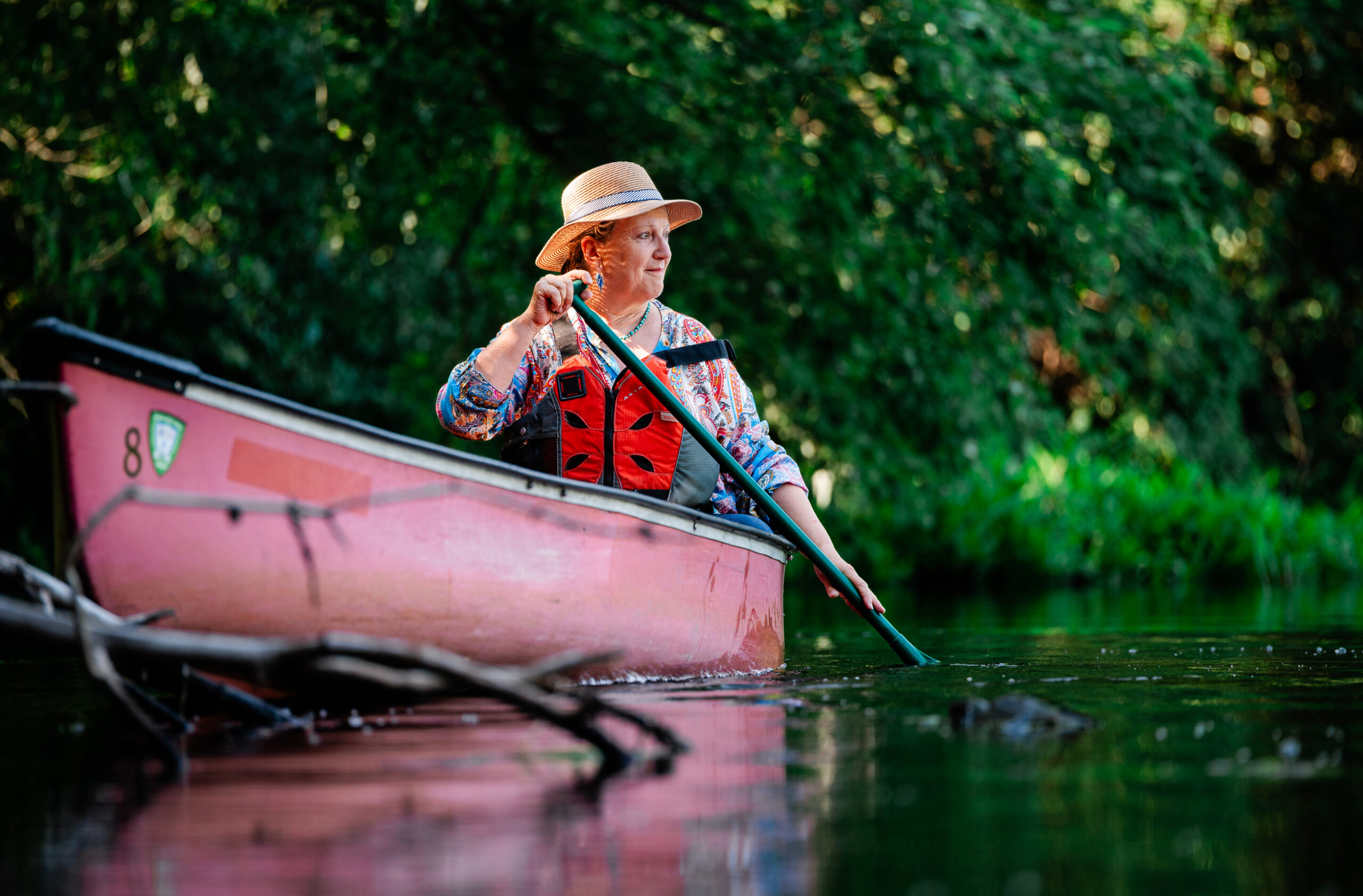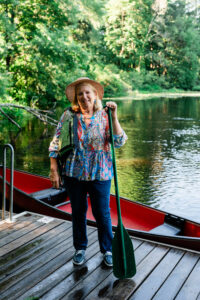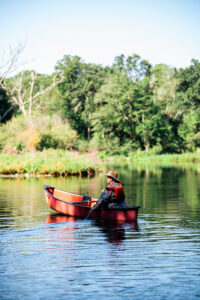In the fall of 1976, Kendall Tarr Inglese was a wide-eyed freshman at Mount Holyoke College from Madison, Wis. An avid outdoor sportswoman, her first order of business was to size up her recreational options. Her youth had been spent walking, biking, swimming, running, skiing, and ice skating. She attended Madison West High School, where she was a three-sport athlete. One of her teammates on the varsity track team was Beth Heiden, who won a bronze medal in speed skating at the 1980 Lake Placid Olympic games. You might remember her brother — Eric Heiden. He won gold medals in all five speed-skating events at Lake Placid, setting four Olympic records and one world record.
“I ran against Beth and she totally lapped me, that’s all I remember,” Inglese said.
Inglese eventually ended up at Kendall Hall, the school’s physical-education and athletics facility (Yes, I’ll get to that connection a little later).
“I was used to using lakes and water year-round so I had been running the trails around Upper and Lower Lake on campus. Kendall Hall really wasn’t enough for me,” Inglese said. “It was the ‘70s and there really were no real programs at all. I was basically looking for an ice rink.”
Inglese ventured off campus for a run along the Connecticut River. What she found turned out to be just the ticket.
“It was a crisp fall day and it was just so beautiful and big with nothing but open space,” she said. “Then I saw this new crew team from Mount Holyoke and started rowing with them. I had never rowed before, so it was all new.”
The team’s first organized practice under coach Burt Apfelbaum didn’t go that well.
“It was misty and extremely foggy, but we tied ourselves into our boats without knowing how to coordinate the oars,” she said. “None of us knew what we were doing, so we were just floating down the river while Burt was with the varsity boat and heard the ‘shhhhh’ sound of the falls. We honestly thought about jumping, but it was only when we were very close to the falls did Burt mystically appear to rescue us before going over the falls. I don’t know whether he did it on purpose as a team-building exercise, but we really bonded after that.”
Fast forward eight weeks to the Head of the Charles regatta, founded in 1965 by the Cambridge Boat Club. Its website says the two-day event attracts more than 11,000 competitors a year and features the “world’s best crew teams.”
The varsity boat was led by Holly Metcalf, who went on to represent the United States on six national teams and win the gold medal in 8s at the 1984 Olympics.
However, suffice it to say that Mount Holyoke’s fledgling varsity and junior-varsity boats did not fall into that “world’s best” category.
Upon arrival, Inglese and her fellow teammates saw something they weren’t expecting.
“Everywhere we looked, it was nothing but men. There were no women. There were no women’s races. We were the only women competitors,” Inglese said. “We had no idea we were the only women’s boats there.”
Apfelbaum had entered both boats in the men’s varsity 8s race. Inglese was in the JV boat, the first Lyons’ shell to hit the water. Conditions were tough with rough waves and blustery wind gusts, but the JV boat made it across the finish line ahead of several all-male boats.
“We almost rammed into one of the bridge supports during the race, but the crowd was roaring us on,” Inglese said. “I was at bow, I knew how close we came to a disaster but we all also knew this race was bigger than just us. Not until 30 years later when watching a documentary did I realize just how big it all was. Being an all-women’s college, the Title IX protests at the time weren’t explained to us back in ‘76. We had no idea why women, like the Yale women’s crew team, were protesting about the inequity in women’s sports budgets. Honestly, we all thought that when Burt told us what was going on, he wanted us to join the protests so we would take off our shirts, like the Yale ladies did.”
Following graduation in 1980 with a triple major in international history, economics, and political science, Inglese worked in restaurant management for a short time until she discovered there was “too much weekend and late-night work.”
A prominent local artist, Inglese started her own business, Amergent, doing direct-mail marketing campaigns with clients “across the country.”
Inglese had no idea until years after graduating that her namesake, Amos Kendall, her great-great-grandfather’s brother, had donated money to Mount Holyoke for a capital project — Kendall Hall, the school’s athletics facility.
“One day I was sitting at Kendall Hall and my classmates were joking with me about having the same name as the building,” Inglese said. “Years later, I did some research and legend that one of my ancestors did, indeed, donate the money that eventually was used to build Kendall Hall and also a library in Leoominster.”
These days, Inglese spends her time painting and was recently a Lynnfield Art Guild featured artist. She serves as the STEM and arts program director
At Lark Studio Arts & Lark Learning and is a former executive director of the Lynnfield Wakefield Chamber of Commerce.
She personifies the definition of a Renaissance woman. She volunteers at the Ipswich River Watershed Association teaching kayaking to kids. She plays the guitar and sings. She still hikes a couple of times a week and swims at the Torigian YMCA, an organization that she played a pivotal role in the creation of as a member of its steering committee. She loves to dance “any kind of live music” (with her husband Vince).
This past summer, she returned to her rowing days, hosting a 30,000-meter rowing challenge fundraiser for the Leukemia & Lymphoma Society.
While Inglese is proud of the role she played in the development of Mount Holyoke’s crew program, she stops short of describing herself as a trailblazer, instead saying that “that’s what you’re supposed to do.”
“Mount Holyoke’s motto is ‘The Uncommon Woman.’ Many more women had great rows and camaraderie. But that first year was do or die for the program,” she said.
Inglese spent only one year on the team. But it wasn’t because of the two-a-day mandatory practice sessions — even during vacations. She went on to start an on-campus cafe — the Coffee Grind — with live music, Tarr bars (a Midwestern brownie made without eggs, capable of surviving a nuclear war), fresh-drip coffee, and other treats.
“Mount Holyoke served its own dinners back then in every dormitory, but I missed every dinner coming home late from crew practice because Stella, the cook at Brigham dorm, wouldn’t save anything for us,” Inglese said.
“Her version of Milk & Cookies looked like sponges with jelly on them,” she added, referring to a longtime 10 p.m. dorm tradition at the school in which a variety of snacks were served in the dining room.
“I opened Coffee Grind and stopped rowing for one reason — I was starving all the time!” Inglese said.
Inglese has been married to Vince Inglese for 37 years. They have two children — Eric, who also lives in Lynnfield, and Sarah, the mother of their 3-year-old granddaughter.





